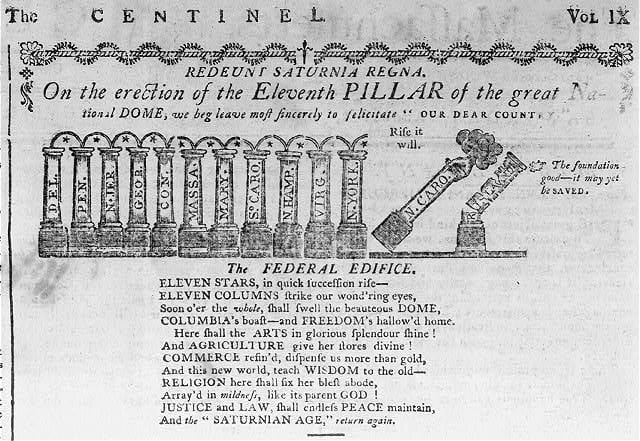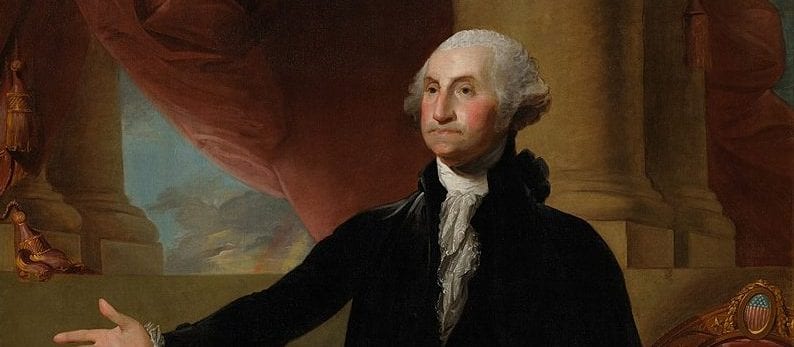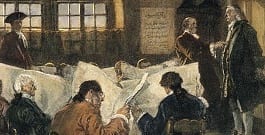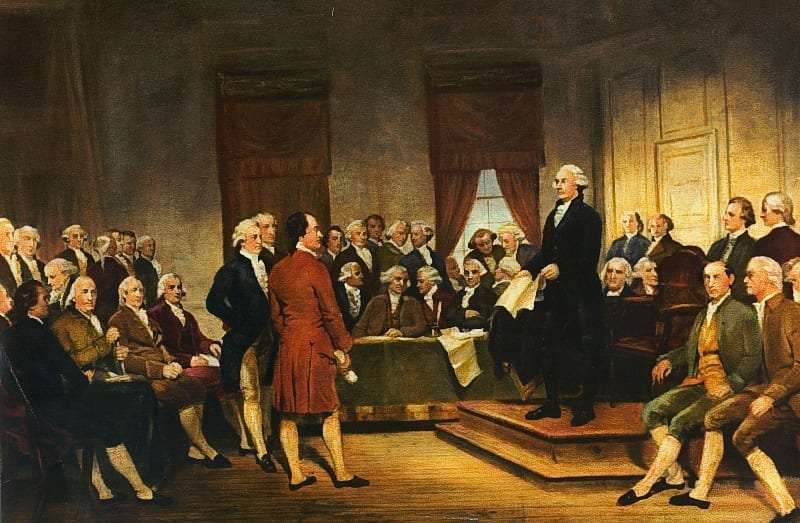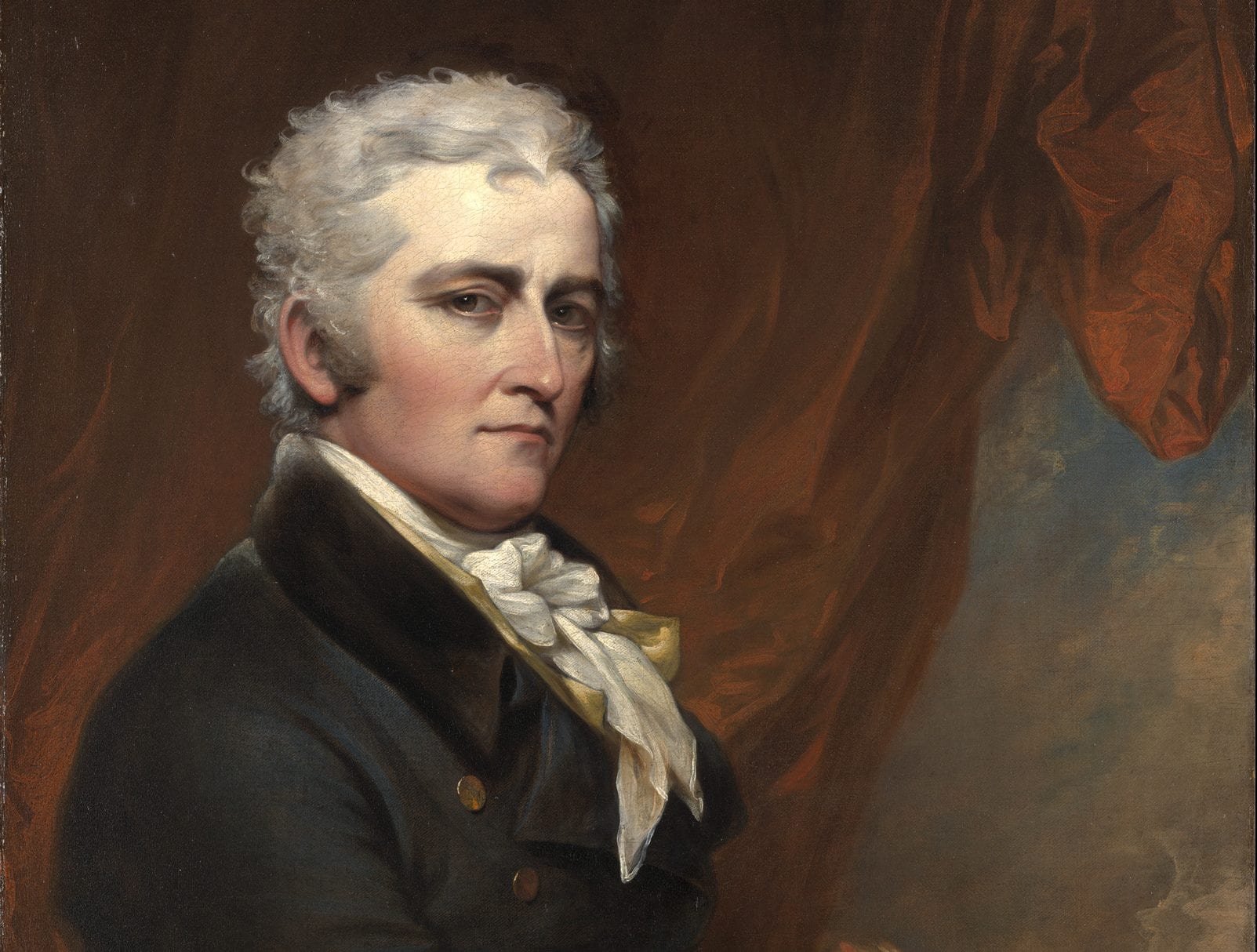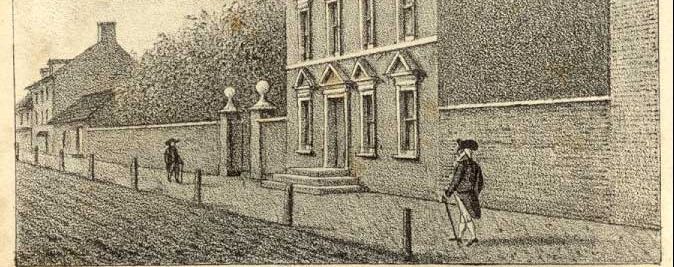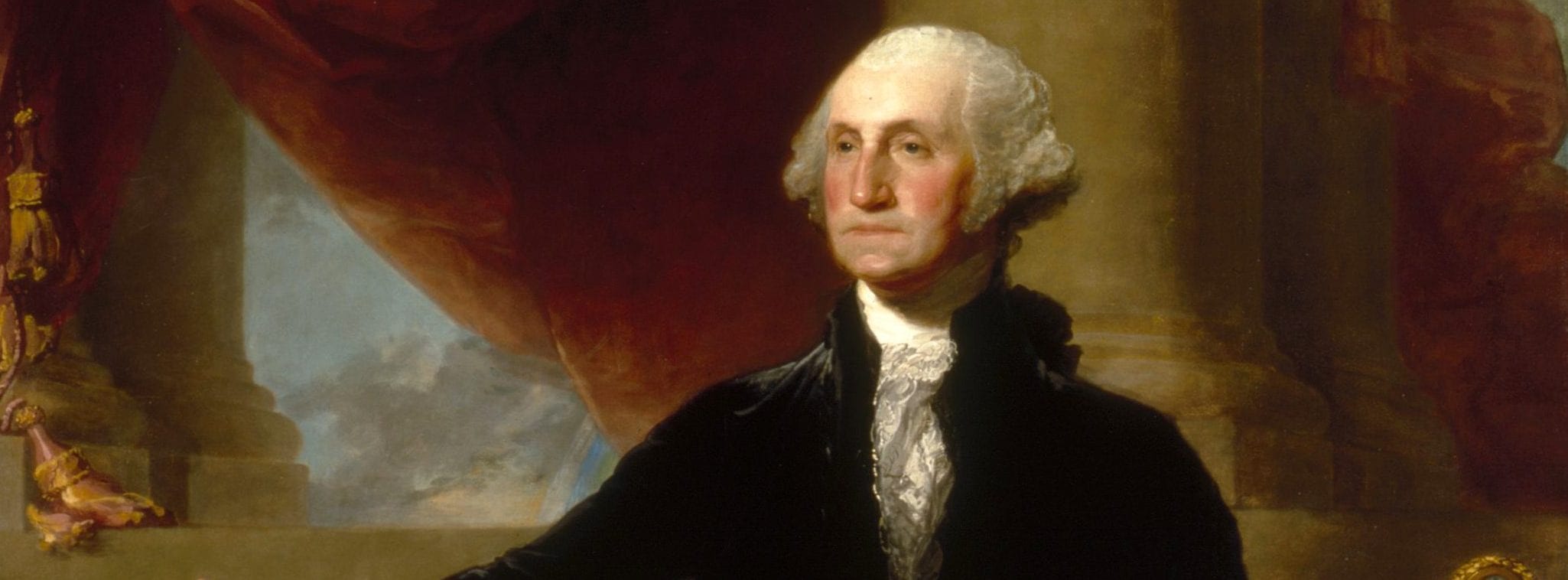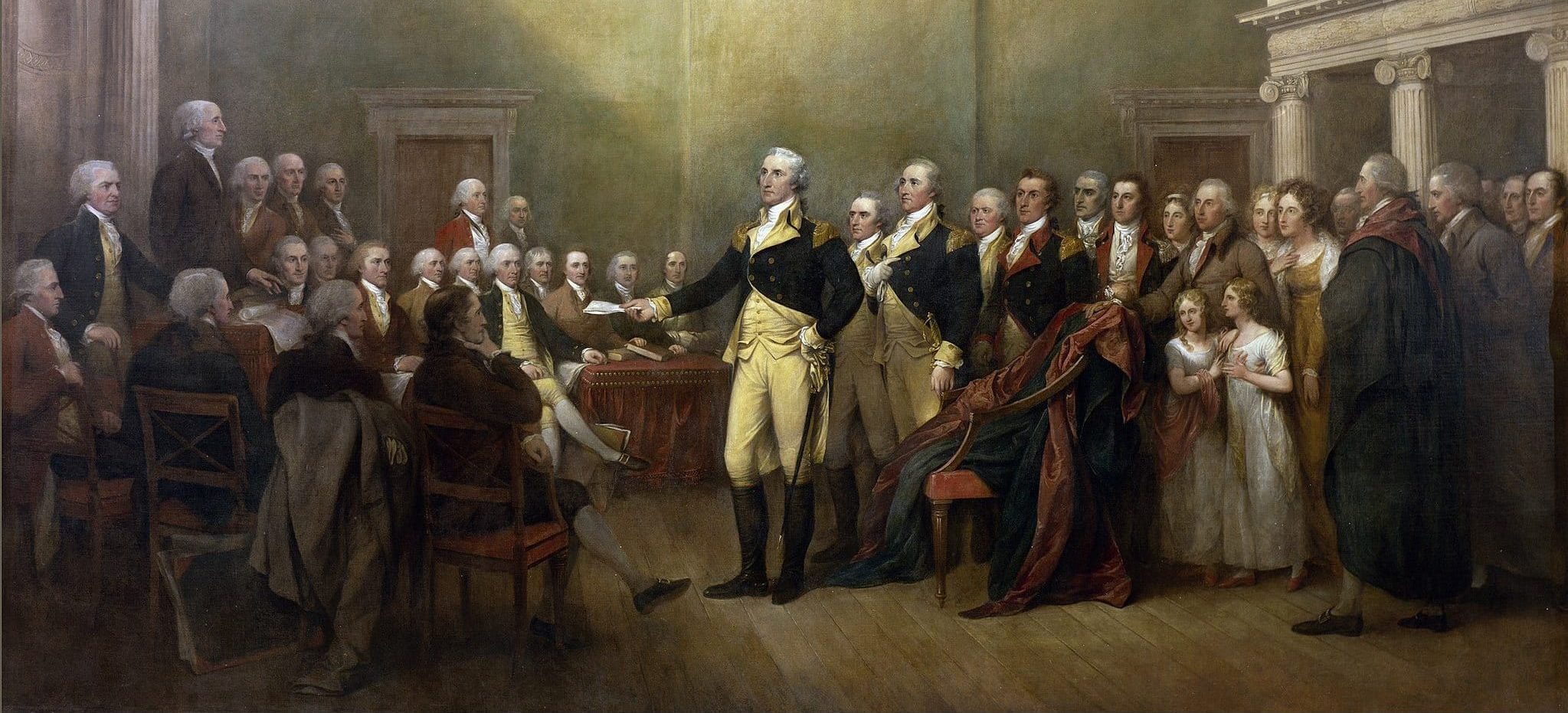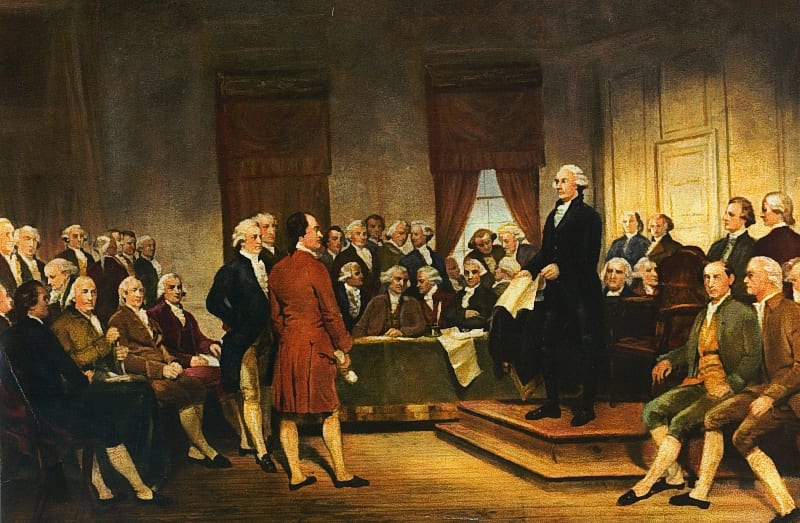
No study questions
No related resources
Mr. MARTIN’S Information to the House of Assembly, continued.
With respect to that part of the second section of the first article, which relates to the apportionment of representation and direct taxation, there were considerable objections made to it, besides the great objection of inequality—It was urged, that no principle could justify taking slaves into computation in apportioning the number of representatives a State should have in the government—that it involved the absurdity of increasing the power of a State in making laws for free men in proportion as that State violated the rights of freedom—That it might be proper to take slaves into consideration, when taxes were to be apportioned, because it had a tendency to discourage slavery; but to take them into account in giving representation tended to encourage the slave trade, and to make it the interest of the States to continue that infamous traffic—That slaves could not be taken into account as men, or citizens, because they were not admitted to the rights of citizens in the States which adopted or continued slavery—If they were to be taken into account as property, it was asked, what peculiar circumstance should render this property (of all others the most odious in its nature) entitled to the high privilege of conferring consequence and power in the government to its possessors, rather than any other property—and why slaves should, as property, be taken into account rather than horses, cattle, mules, or any other species—and it was observed by an honorable member from Massachusetts, that he considered it as dishonorable and humiliating to enter into compact with the slaves of the southern States, as it would be with the horses and mules of the eastern.2 It was also objected, that the numbers of representatives appointed by this section to be sent by the particular States to compose the first legislature, were not precisely agreeable to the rule of representation adopted by this system, and that the numbers in this section are artfully lessened for the large States, while the smaller States have their full proportion in order to prevent the undue influence which the large States will have in the government from being too apparent; and I think, Mr. Speaker, that this objection is well founded. —I have taken some pains to obtain information of the numbers of free men and slaves in the different States, and I have reason to believe, that if the estimate was now taken, which is directed, and one delegate to be sent for every thirty thousand inhabitants, that Virginia would have at least twelve delegates, Massachusetts eleven, and Pennsylvania ten, instead of the numbers stated in this section; whereas the other States, I believe, would not have more than the numbers there allowed them, nor would Georgia, most probably at present, send more than two—If I am right, Mr. Speaker, upon the enumeration being made, and the representation being apportioned according to the rule prescribed, the whole number of delegates would be seventy—one, thirty—six of which would be a quorum to do business; the delegates of Virginia, Massachusetts, and Pennsylvania, would amount to thirty—three of that quorum—Those three States will, therefore, have much more than equal power and influence in making the laws and regulations, which are to affect this continent, and will have a moral certainty of preventing any laws or regulations which they disapprove, although they might be thought ever so necessary by a great majority of the States—It was further objected, that even if the States who had most inhabitants ought to have a greater number of delegates, yet the number of delegates ought to be in exact proportion to the number of inhabitants, because the influence and power of those States whose delegates are numerous, will be greater when compared to the influence and power of the other States, than the proportion which the numbers of their delegates bear to each other; as for instance, though Delaware has one delegate, and Virginia but ten, yet Virginia has more than ten times as much power and influence in the government as Delaware; to prove this, it was observed, that Virginia would have a much greater chance to carry any measure than any number of States, whose delegates were altogether ten (suppose the States of Delaware, Connecticut, Rhode—Island, and New—Hampshire) since the ten delegates from Virginia in every thing that related to the interest of that State would act in union and move one solid and compact body, whereas the delegates of these four States, though collectively equal in number to those from Virginia, coming from different States, having different interests, will be less likely to harmonize and move in concert—As a further proof it was said, that Virginia, as the system is now reported, by uniting with her the delegates of four other States, can carry a question against the sense and interest of eight States by sixty—four different combinations, the four States voting with Virginia, being every time so far different as not to be composed of the same four; whereas the State of Delaware can only, by uniting four other States with her, carry a measure against the sense of eight States by two different combinations—a mathematical proof that the State of Virginia has thirty—two times greater chance of carrying a measure against the sense of eight States than Delaware, although Virginia has only ten times as many delegates—It was also shewn, that the idea was totally fallacious which was attempted to be maintained, that if a State had one thirteenth part of the numbers composing the delegation in this system, such State would have as much influence as under the articles of confederation; to prove the fallacy of this idea it was shewn, that under the articles of confederation the State of Maryland had but one vote in thirteen, yet no measure could be carried against her interests without seven States, a majority of the whole concurring in it; whereas in this system, though Maryland has six votes, which is more than the proportion of one in thirteen, yet five States may, in a variety of combinations, carry a question against her interest, though seven other States concur with her, and six States by a much greater number of combinations, may carry a measure against Maryland, united with six other States. I shall here, Sir, just observe, that as the committee of detail reported the system, the delegates from the different States were to be one for every forty thousand inhabitants; it was afterwards altered to one for every thirty thousand; this alteration was made after I left the convention, at the instance of whom I know not,’ but it is evident that the alteration is in favour of the States which have large and extensive territory to increase their power and influence in the government, and to the injury of the smaller States—Since it is the States of extensive territory, who will most speedily increase the number of their inhabitants as before has been observed, and will, therefore, most speedily procure an increase to the number of their delegates—By this alteration Virginia, North—Carolina, or Georgia, by obtaining one hundred and twenty thousand additional inhabitants, will be entitled to four additional delegates, whereas such State would only have been entitled to three, if forty thousand had remained the number by which to apportion the delegation. As to that part of this section that relates to direct taxation, there was also an objection for the following reasons—It was said that as a large sum of money was to be brought into the national treasury by the duties on commerce, which would be almost wholly paid by the commercial States, it would be unequal and unjust that the sum which was necessary to be raised by direct taxation should be apportioned equally upon all the States, obliging the commercial States to pay as large a share of the revenue arising therefrom, as the States from whom no revenue had been drawn by imposts—Since the wealth and industry of the inhabitants of the commercial States will in the first place be severely taxed through their commerce, and afterwards be equally taxed with the industry and wealth of the inhabitants of the other States, who have paid no part of that revenue, so that by this provision, the inhabitants of the commercial States are in this system obliged to bear an unreasonable and disproportionate share in the expences of the union, and the payment of that foreign and domestic debt, which was incurred not more for the benefit of the commercial than of the other States. In the sixth section of the first article, it is provided, that senators and representatives may be appointed to any civil office under the authority of the United States, except such as shall have been created, or the emoluments of which have been increased during the time for which they were elected—Upon this subject, Sir, there was a great diversity of sentiment among the members of the convention—As the propositions were reported by the committee of the whole house, a senator or representative could not be appointed to any office under a particular State, or under the United States, during the time for which they were chosen, nor to any office under the United States until one year after the expiration of that time.4—It was said, and in my opinion justly, that no good reason could be assigned why a senator or representative should be incapacitated to hold an office in his own government, since it can only bind him more closely to his State, and attach him the more to its interests, which, as its representative, he is bound to consult and sacredly guard as far as is consistent with the welfare of the union, and therefore, at most, would only add the additional motive of gratitude for discharging his duty; and according to this idea, the clause which prevented senators or delegates from holding offices in their own States, was rejected by a considerable majority; but, Sir, we sacredly endeavoured to preserve all that part of the resolution which prevented them from being eligible to offices under the United States, as we considered it essentially necessary to preserve the integrity, independence, and dignity of the legislature, and to secure its members from corruption.
I was in the number of those who was extremely solicitous to preserve this part of the report; but there was a powerful opposition made by such who wished the members of the legislature to be eligible to offices under the United States—Three different times did they attempt to procure an alteration, and as often failed, a majority firmly adhering to the resolution as reported by the committee—However, an alteration was at length, by dint of perseverance, obtained even within the last twelve days of the convention, for it happened after I left Philadelphia5—As to the exception that they cannot be appointed to offices created by themselves, or the emoluments of which are by themselves increased, it is certainly of little consequence, since they may easily evade it by creating new offices to which may be appointed the persons who fill the offices before created, and thereby vacancies will be made which may be filled by the members who for that purpose have created the new offices.
It is true, the acceptance of an office vacates their seat, nor can they be re—elected during their continuance in office; but it was said, that the evil would first take place, that the price for the office would be paid before it was obtained—that vacating the seat of the person who was appointed to office, made way for the admission of a new member, who would come there as desirous to obtain an office as him whom he succeeded, and as ready to pay the price necessary to obtain it; in fine, that it would be only driving away the flies who were filled to make room for those that were hungry—And as the system is now reported, the president having the power to nominate to all offices, it must be evident, that there is no possible security for the integrity and independence of the legislature, but that they are most unduly placed under the influence of the president and exposed to bribery and corruption.
(To be continued.)
Agrippa XII Part 1
January 11, 1788
Conversation-based seminars for collegial PD, one-day and multi-day seminars, graduate credit seminars (MA degree), online and in-person.




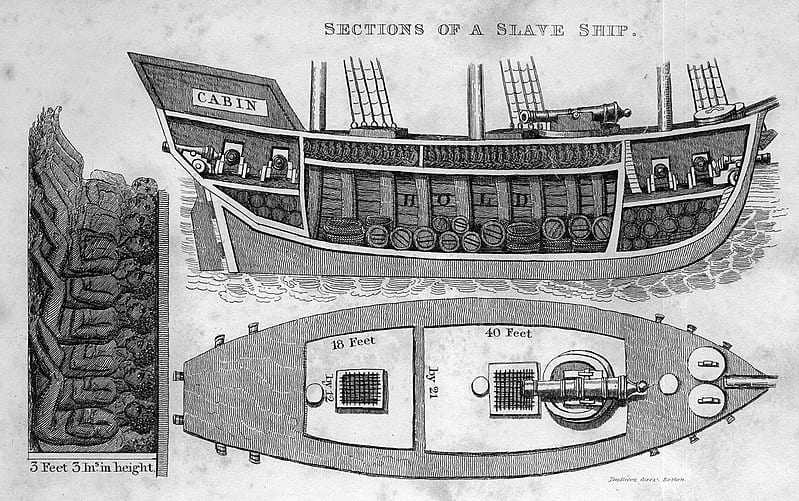






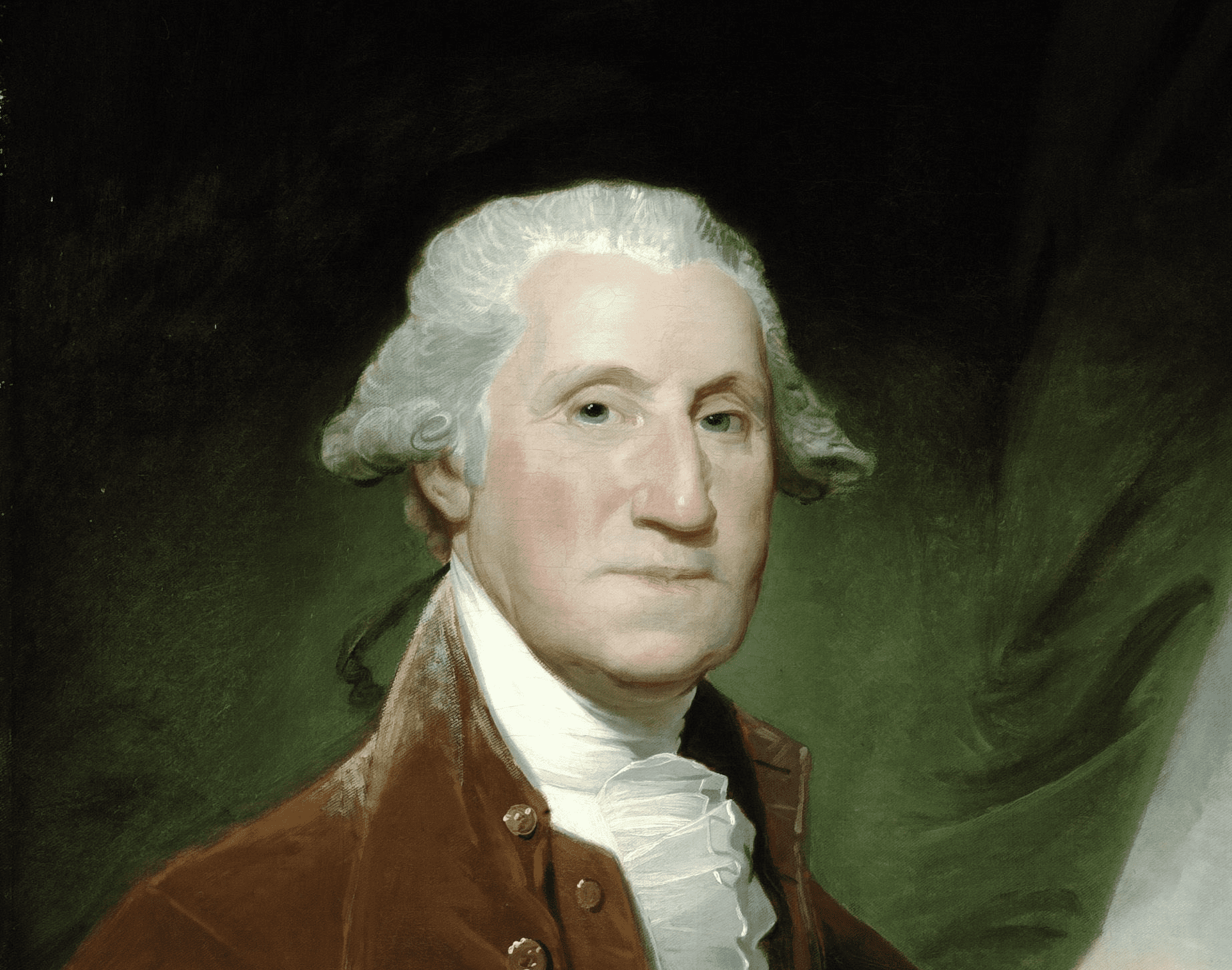















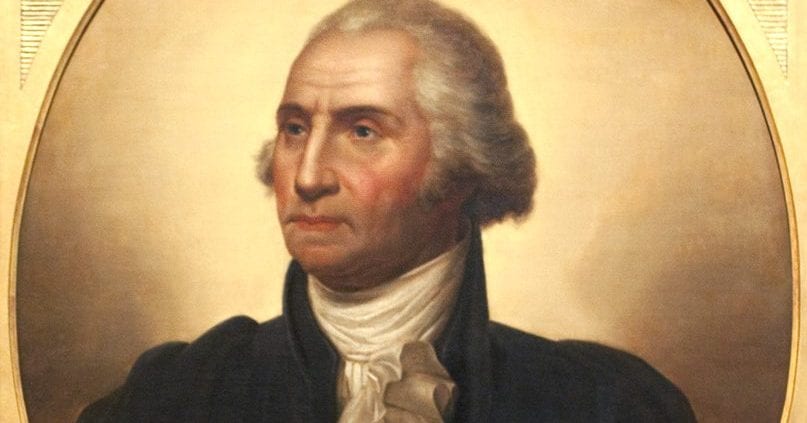
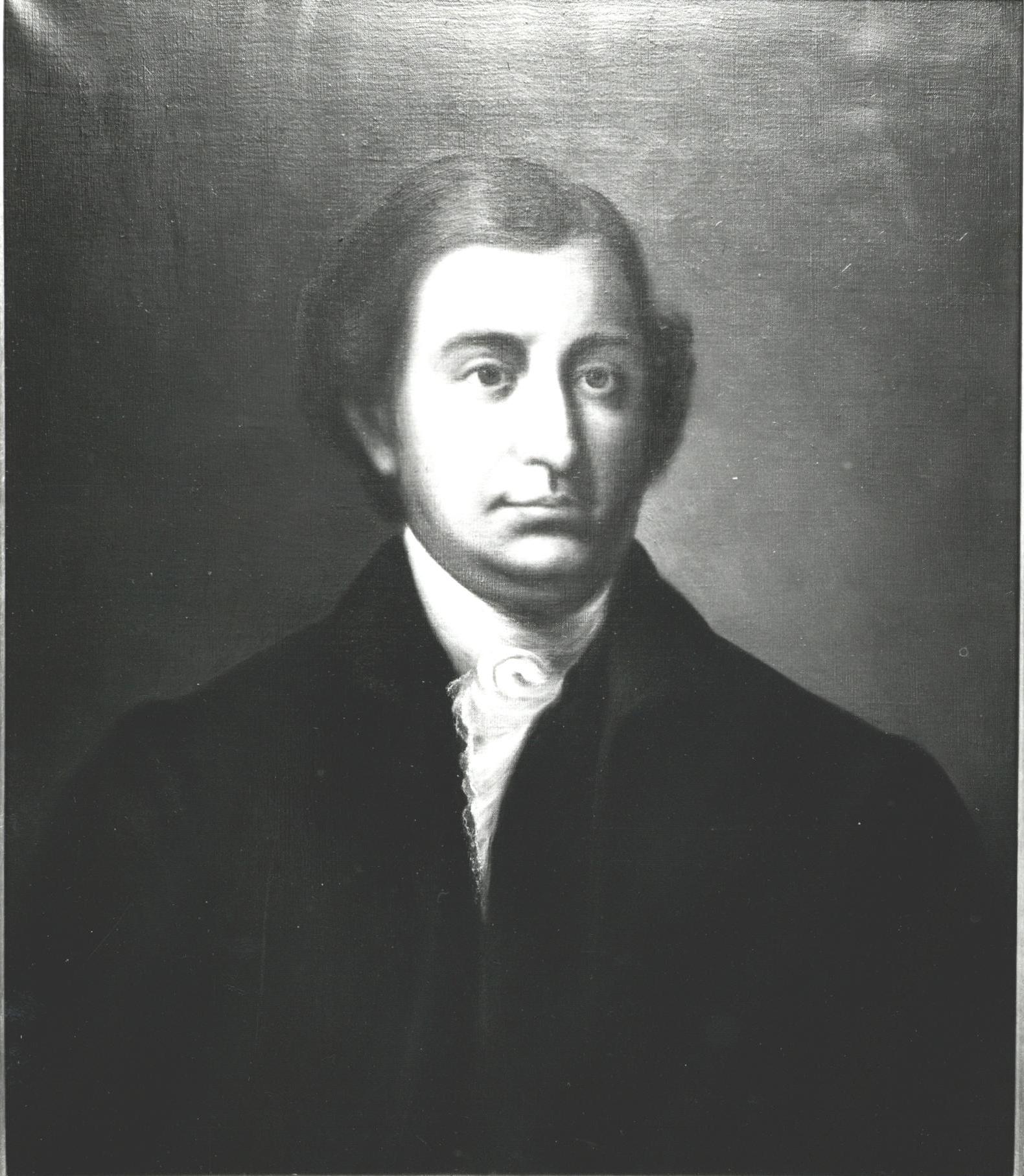
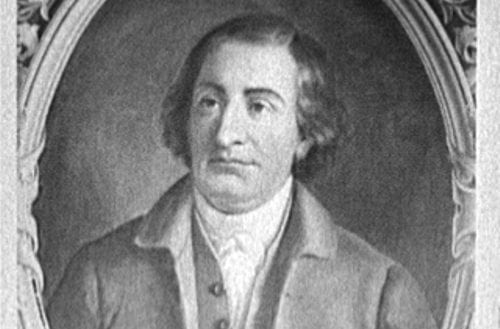
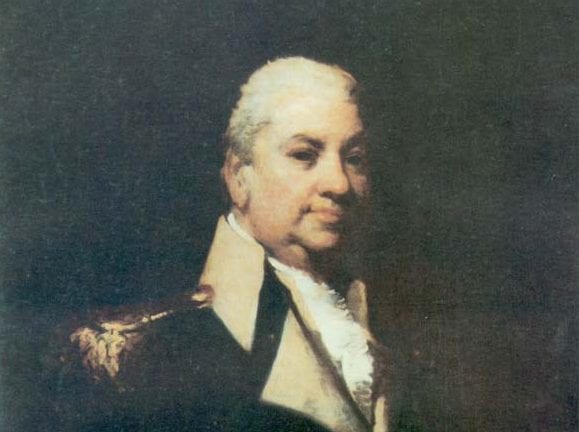




















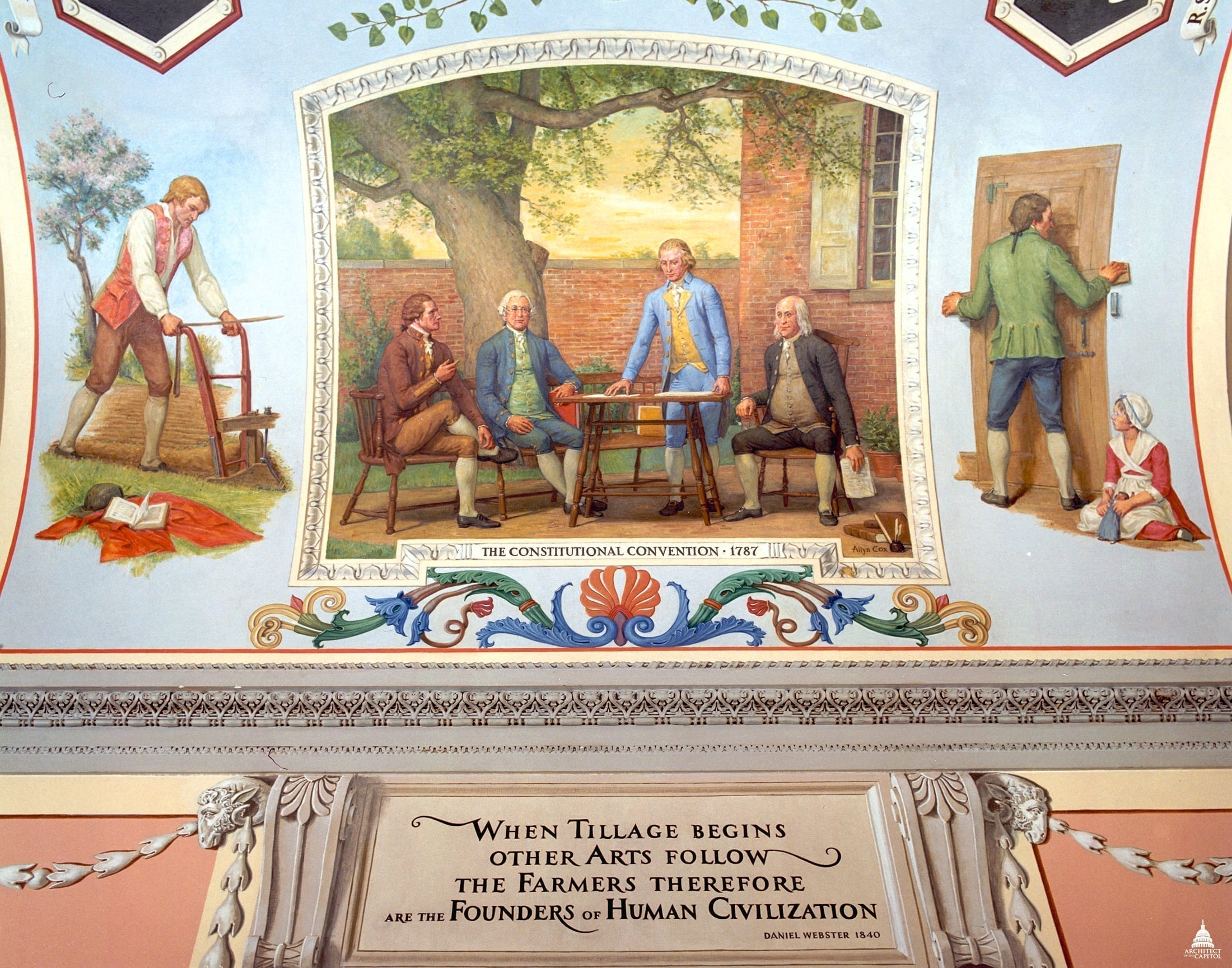

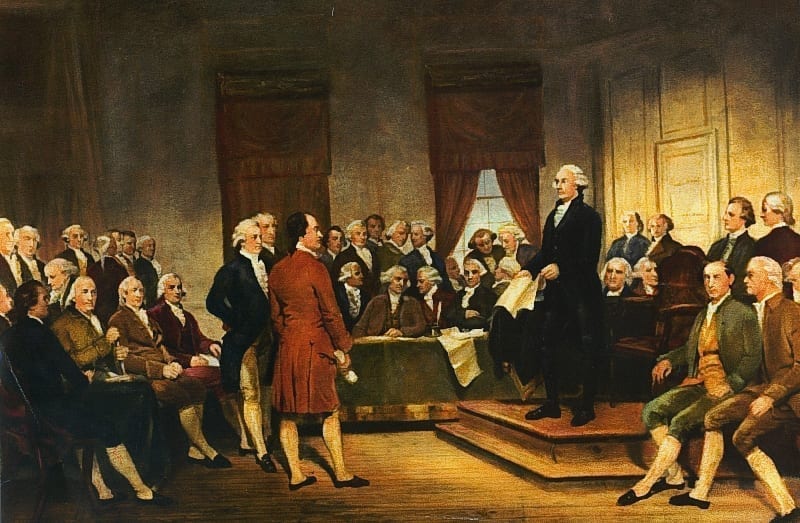


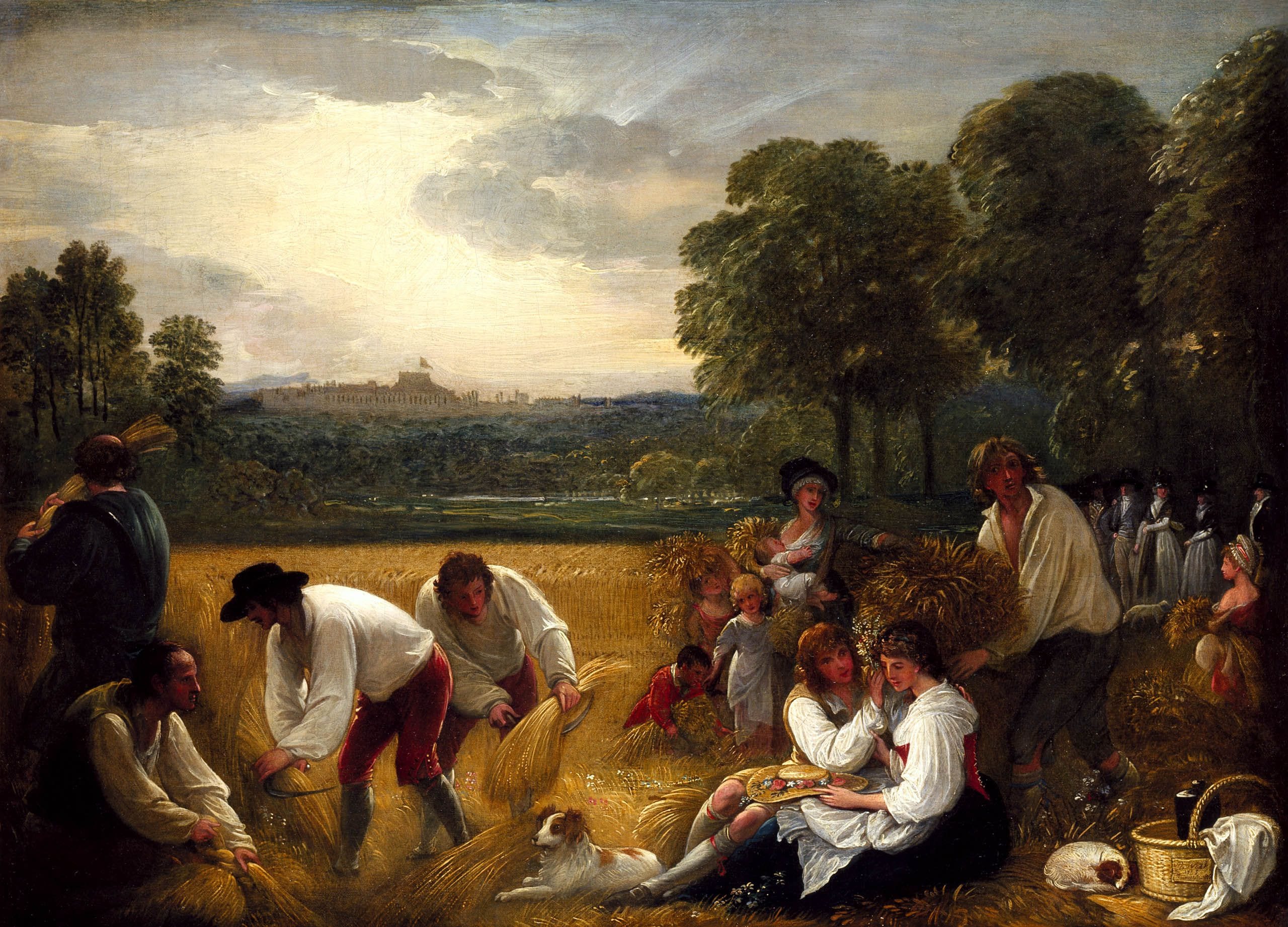




















































































































![Finley, A. (1829) Pennsylvania. Philada. [Map] Retrieved from the Library of Congress, https://www.loc.gov/item/98688548/.](/content/uploads/2024/02/Map-of-PA--273x190.jpg)





















